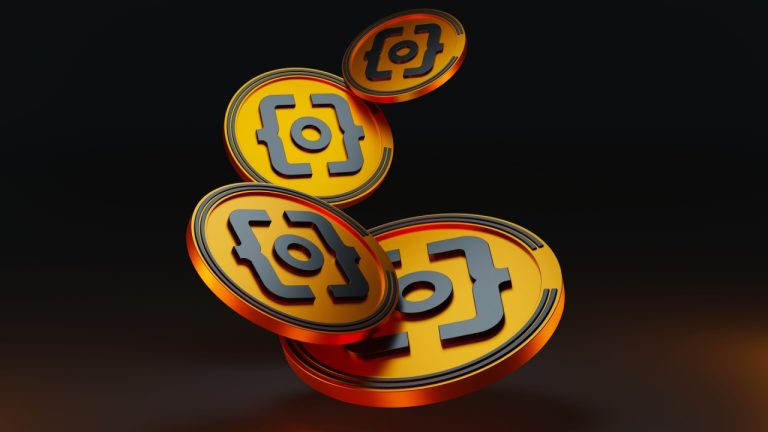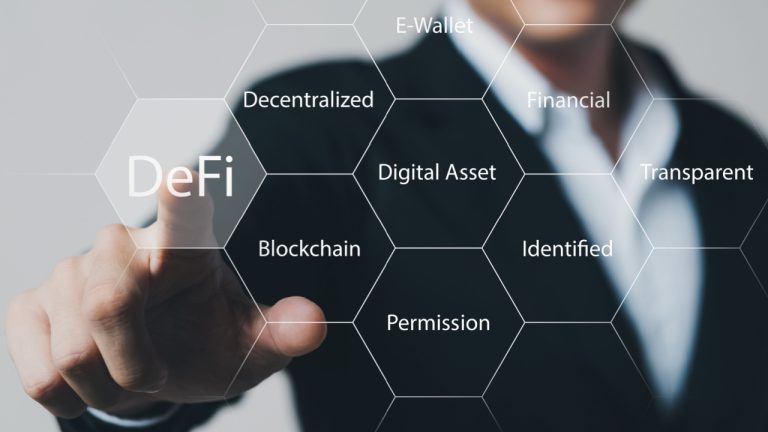 Everyworld, the Coinbase and A16z-backed Web3 advertising network, is set to start its community airdrop on April 15. Users who wish to participate in the airdrop must not be U.S. citizens or residents of 25 other countries, including Australia, China, and Russia. The Web3 rewarded ads protocol follows a similar model by rewarding users directly […]
Everyworld, the Coinbase and A16z-backed Web3 advertising network, is set to start its community airdrop on April 15. Users who wish to participate in the airdrop must not be U.S. citizens or residents of 25 other countries, including Australia, China, and Russia. The Web3 rewarded ads protocol follows a similar model by rewarding users directly […] Rohit Wad, the chief technology officer (CTO) of Binance said his platform has increased its compliance budget in recent years to ensure it achieves the “highest regulatory compliance standard.” According to Wad, Binance has used a compliance budget, which rose 35% year over year to $213 million, to invest in transaction monitoring, market surveillance, and […]
Rohit Wad, the chief technology officer (CTO) of Binance said his platform has increased its compliance budget in recent years to ensure it achieves the “highest regulatory compliance standard.” According to Wad, Binance has used a compliance budget, which rose 35% year over year to $213 million, to invest in transaction monitoring, market surveillance, and […] Large institutions will fully embrace decentralized finance (defi) only when they are confident that their trade counterparties will comply with sanctions and other international laws, argues Elie Le Rest, CEO of Colony Lab. However, Le Rest, also an angel investor, said trade counterparties can still demonstrate their willingness to adhere to rules by implementing gated […]
Large institutions will fully embrace decentralized finance (defi) only when they are confident that their trade counterparties will comply with sanctions and other international laws, argues Elie Le Rest, CEO of Colony Lab. However, Le Rest, also an angel investor, said trade counterparties can still demonstrate their willingness to adhere to rules by implementing gated […] Diana Tlupova, Head of Compliance at Nexera ID, has argued players in the decentralized finance (defi) space can stay ahead of regulators who might want to impose stringent Know-Your-Customer (KYC) rules by using zero-knowledge (zk) proofs to authenticate user credentials. Tlupova contends that, in addition to allowing users to maintain control over their KYC data, […]
Diana Tlupova, Head of Compliance at Nexera ID, has argued players in the decentralized finance (defi) space can stay ahead of regulators who might want to impose stringent Know-Your-Customer (KYC) rules by using zero-knowledge (zk) proofs to authenticate user credentials. Tlupova contends that, in addition to allowing users to maintain control over their KYC data, […]

Kucoin users from New York will lose the ability to trade within 30 days and will have their accounts closed within 120 days.
Crypto exchange Kucoin has agreed to pay $22 million to the State of New York and to bar residents of the state from using its platform, according to a stipulation and consent order filed in the New York Supreme Court on December 12.
According to the order, Kucoin admits that it “operates a cryptocurrency trading platform on which users, including users in New York state, can purchase or sell cryptocurrencies which are securities or commodities as defined under the laws of New York state and that Kucoin is not registered as a securities or commodities broker-dealer.” In addition, Kucoin “admits that it represented itself as an ‘exchange’ and was not registered as an exchange pursuant to the laws of New York State.”
Kucoin has agreed to close the accounts of all New York resident users within 120 days and to prevent New York residents from obtaining accounts in the future. In addition, it will restrict access to withdrawals only within 30 days, leaving the remaining 90 days available for users to withdraw funds.

Uniswap announced it would start charging a swap fee of 15% from Oct. 17, evoking mixed reactions from the crypto community.
Welcome to Finance Redefined, your weekly dose of essential decentralized finance (DeFi) insights — a newsletter crafted to bring you the most significant developments from the past week.
The past week in DeFi was dominated by developments in the popular decentralized exchange platform Uniswap after it announced a 0.15% swap fee starting on Oct. 17, and an open-source hook on Uniswap generated controversy due to Know Your Customer (KYC) checks.
In other major DeFi developments, Platypus Finance managed to recover 90% of the funds it lost to an Oct. 12 exploit while the layer-2 zero-knowledge Ethereum Virtual Machine (zkEVM) “Scroll” launched its mainnet.
The top 100 DeFi tokens by market capitalization had a bullish week thanks to Friday momentum in the market, with a majority of the tokens trading in green and recording double-digit gains on the weekly charts. However, the price action didn’t reflect on the total value locked (TVL), which fell by nearly $2 billion.
The Ethereum liquid staking derivatives finance (LSDFi) ecosystem has seen a surge in growth this year as Ether (ETH) holders chose to stake rather than liquidate.
Despite ETH withdrawals being enabled with the Ethereum Shapella upgrade in April 2023, an Oct. 16 LSDFi report from crypto data aggregator CoinGecko said the sector has grown by 58.7x since January. By August 2023, LSD protocols accounted for 43.7% of the total 26.4 million ETH staked, with Lido having the lion’s share at almost a third of the total staked market.
Scroll, a new contender in the zkEVM space that works to scale the blockchain, has confirmed the launch of its mainnet.
The team behind Scroll announced the launch in an Oct. 17 post and added that existing applications and developer tool kits on Ethereum can now migrate to the new scaling solution. “Everything functions right out of the box,” the Scroll team said.
DeFi protocol Platypus Finance said it had recovered 90% of assets stolen in a security breach last week.
According to the Oct. 17 announcement, the protocol’s net loss was limited to 18,000 Avalanche (AVAX) worth $167,400 at the time. As the hacker voluntarily returned the funds, Platypus Finance stated it “will guarantee that no legal action will be pursued.” It also hinted that withdrawal information regarding users’ assets will soon be posted.
Decentralized exchange Uniswap began charging a 0.15% swap fee on certain tokens in its web application and wallet on Oct. 17.
According to a post by Uniswap founder Hayden Adams, the affected tokens are ETH, USD Coin (USDC), Wrapped Ether (wETH), Tether (USDT), Dai (DAI), Wrapped Bitcoin (WBTC), Angle Protocol’s agEUR, Gemini Dollar (GUSD), Liquidity USD (LUSD), Euro Coin (EUROC) and StraitsX Singapore Dollar (XSGD). Shortly after publication, a spokesperson for Uniswap reached out to Cointelegraph, stating that “both the input and output token need to be on the list for the fee to apply.”
A new hook available on an open-source directory for Uniswap v4 hooks is sparking controversy within the crypto community. The hook enables users to be checked for KYC before they can trade in token pools.
Criticizing the hook, a user on X (formerly Twitter) noted that the hook opens up the possibility of decentralized finance protocols being whitelisted by regulators.
Data from Cointelegraph Markets Pro and TradingView shows that DeFi’s top 100 tokens by market capitalization had a bullish week, with most tokens trading in the green on weekly charts. However, the total value locked into DeFi protocols dropped to $43.81 billion.

Thanks for reading our summary of this week’s most impactful DeFi developments. Join us next Friday for more stories, insights and education regarding this dynamically advancing space.

TrueCoin’s internal systems were not impacted or accessed, and the company confirmed that the attack was an isolated incident and limited to a third-party vendor.
The team behind stablecoin TrueUSD (TUSD) announced a potential leak of certain Know Your Customer (KYC) and transaction history data after one of TrueCoin’s third-party vendors was compromised.
TrueCoin was the operator of the TUSD stablecoin until July 13, 2023. On Oct. 16, a third-party vendor’s security team informed TrueCoin of “an anomalous account change within [TrueCoin’s] organization made by a compromised support vendor.” As a result, TrueCoin suspects the compromise of some of TUSD’s existing customer data.
TUSD team was informed by TrueCoin that they received a third-party vendor's notification that the vendor’s Security Team detected “an anomalous account change within [TrueCoin’s] organization made by a compromised support vendor.”
— TrueUSD (@tusdio) October 16, 2023
TrueCoin’s internal systems were not impacted or accessed, as the company confirmed the attack was an isolated incident on a third-party vendor. “TUSD system is SECURE and not attacked. Both TUSD system and TUSD’s reserves are UNAFFECTED,” affirmed TrueUSD through its official X (formerly Twitter) account.
Data collected from such breaches — names, email addresses and phone numbers, among others — are typically used for phishing attacks. Attackers reach out to unwary investors by mimicking various crypto services, often promising high profits in short amounts of time.
The impact of the attack and the resultant data leak is yet to be identified, as the total number of users’ data was not revealed during the announcement.
TrueUSD has not yet responded to Cointelegraph’s request for comment.
Related: TrueUSD stops minting via Prime Trust, loses dollar peg
TrueCoin recently distanced itself from Nevada-based Prime Trust right after the latter abruptly halted all fiat and cryptocurrency deposits and withdrawals.
TrueUSD announced that “it is not affected by the situation” at Prime Trust while emphasizing its diversified partnerships and maintaining “multiple USD rails” elsewhere.
“PrimeTrust has suspended all deposits of fiat and digital assets. #TrueUSD (#TUSD) is not affected by this situation. We have no exposure to Prime Trust and maintain multiple USD rails for minting and redemption. Rest assured, all your funds are safe with TUSD,” TrueUSD stated.
Magazine: Beyond crypto: Zero-knowledge proofs show potential from voting to finance

A hook that enables Know Your Customer (KYC) verification on Uniswap V4 pools is fueling debates about DeFi's future.
A new hook available on an open-source directory for Uniswap V4 hooks is sparking controversy within the crypto community. The hook enables users to be checked for Know Your Customer (KYC) before they can trade on a pool.
Criticizing the hook, a user at X (formerly Twitter) noted that the hook opens up the possibility of decentralized finance protocols being whitelisted by regulators:
"As I explained in all my posts for the past year: It starts with “kyc option” for LPs. And then eventually it moves into a “regulator whitelist approved” database hosted offchain. And then non-kyc gets labeled as illegal terrorist money laundering. Stop simping for soyboys."
Essentially, a hook is a tool that allows developers to customize a code without altering the main structure of the program. In Uniswap V4, this hook will permit developers to use KYC verification within the decentralized finance protocol.
Financial institutions use KYC procedures to authenticate customer identities and assess associated risks. A primary goal of KYC is to detect money laundering and terrorist financing activities.

The KYC hook was rolled out by a community developer on Uniswap V4's directory as an opt-in functionality. The KYC verification is carried out by a nonfungible token (NFT). According to another X user, the hook is specific for liquidity providers and may be useful for projects that must comply with regulatory requirements in certain jurisdictions:
"Seems like you don't understand how this works. #1 it's lp specific. Some projects may want to operate within the legal confines of jurisdiction. #2 hooks can be made by community devs. You're trashing something that has done more than anyone else for "real defi"."
Governments around the world are taking a closer look at DeFi protocols and transactions. Recently, the group of twenty worlds' largest economies, G20, accepted a crypto regulatory roadmap proposed by the International Monetary Fund (IMF) and the Financial Stability Board (FSB) tightening crypto regulations.
Uniswap V4 introduces customizable hooks and is expected to be available in early 2024, with access limited to governance-approved entities.
Magazine: Recursive inscriptions — Bitcoin ‘supercomputer’ and BTC DeFi coming soon

Lennix Lai, OKX’s global chief commercial officer, told Cointelegraph that bringing traditional finance investors into the space would require raising compliance standards.
While some areas of the crypto space focus on privacy and anonymity, others focus on raising the standards within the space and on bringing in traditional players and more capital in the world of digital assets.
At the recent Blockchain Economy Summit held in Dubai, Cointelegraph spoke with Lennix Lai, the global chief commercial officer at crypto exchange OKX. During the interview, the executive discussed several topics, including the differences between working in traditional finance and crypto, how OKX handled the wave of exchanges implementing mandatory Know Your Customer (KYC) checks and how the exchange navigates the rapidly changing regulatory landscape.

Lai and Cointelegraph’s Ezra Reguerra at the Blockchain Economy Summit in Dubai. Source: Joanna Alhambra
According to Lai, crypto is “a lot more fun” than traditional finance. Lai, who previously worked in traditional firms, said there are many processes in the old finance world that he believes are inefficient. He explained:
“It’s relatively difficult to innovate in traditional finance. In crypto, it’s a lot better and more efficient. And in terms of cost, it is a lot more cheap. So, you can see the pace is a lot faster, and we can serve an even bigger audience than traditional finance right now.”
When problems arose, the executive said that there was lots of internal and external friction before being able to fix problems in traditional finance, even when the solutions were obvious. Furthermore, Lai said there are also regulatory aspects to consider before coming up with solutions.
When it comes to crypto, Lai told Cointelegraph that regulators share almost the same guidelines and expectations as they share the goal of protecting the consumer. The executive said that navigating different regulations from various jurisdictions across the world requires extensive research and mapping out the different requirements.

Lai delivering his keynote speech at the Blockchain Economy Summit Dubai event. Source: Cointelegraph
“Different level of requirement, different level of regulation. But I think all the regulators share similar guidelines and expectations. For example, they want to protect the customer, they want to monitor the trade, they want customer segregation,” he said.
Related: How OKX convinced F1 star Daniel Ricciardo it’s safe to promote crypto
When asked about OKX following the trend of bringing mandatory KYC to its exchange, Lai said there is a need to “raise the bar” in crypto, similar to traditional finance. According to the executive, this will bring what he described as “the real capital and the main money” to the space. He explained:
“That’s how we grow the real market, because if ever your compliance standard cannot meet or somehow talking in the same language with traditional finance, they can never, despite of their interest, despite of our innovation, invest or bring in capital to the space.”
According to Lai, KYC is the first level and the first step to trying to raise the compliance standard in the space so that it can welcome other players in the world of finance.
Magazine: $3M OKX airdrop, 1-hour due diligence on 3AC, Binance AI — Asia Express

Policy Exchange published its report on Web3 containing 10 proposals for the U.K. government.
The United Kingdom has an opportunity to capitalize on the departure of Web3 firms leaving the United States due to regulatory uncertainty. But to achieve that, the U.K. will need to follow its own regulatory path, smoothing the requirements for crypto in some regard, according to a think tank.
On Oct. 2, the influential conservative think tank Policy Exchange published a report on Web3 with 10 proposals for the U.K. government, which it claims would help the country improve Web3 regulation.
One proposal made in the report is limiting the liabilities of individuals who hold tokens in a decentralized autonomous organization (DAO). The report cites a negative example of a recent ruling in the U.S. that makes any individual American who owns or previously owned tokens in a DAO liable for any violations of the law the DAO commits.
Related: UK to launch Digital Securities Sandbox in Q1 2024
The report also suggests the principal U.K. financial regulator, the Financial Conduct Authority (FCA), loosens its current Know Your Customer (KYC) approach, allowing for the use of “alternative and innovative techniques,” such as digital identities and blockchain analytics tools.
The experts say the U.K. should avoid undermining self-hosted wallets and regulating proof-of-stake services as a financial service. Among other proposals are allowing private stablecoin issuers to place stablecoin reserves in the Bank of England, creating a “tax wrapper” for the crypto exchange and creating a new sandbox under the Department for Science, Innovation and Technology.
Recently, U.K. regulators have taken a more stringent approach to the digital assets industry. His Majesty’s Treasury is considering banning all cold calls promoting crypto investments, and the FCA has warned local crypto businesses to follow its marketing rules or face consequences.